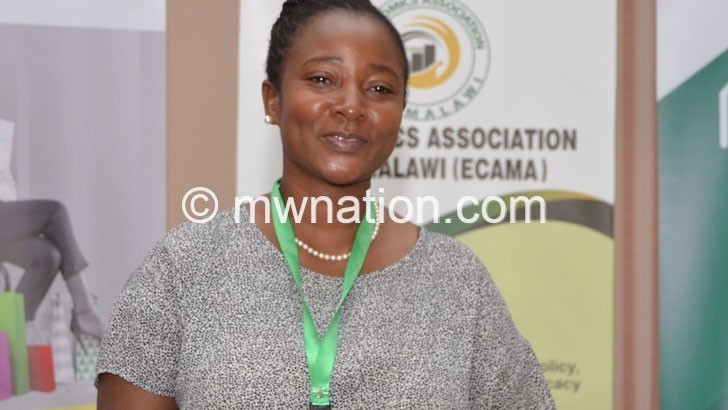Donors’ trust in Malawi low—IMF
International Monetary Fund (IMF) says Malawi is yet to reclaim the trust of donors six years after revelations of plunder of public resources at Capital Hill exposed in October 2013.
In an exclusive interview with The Nation on the sidelines of the Economics Association of Malawi (Ecama) Annual Lake Conference in Mangochi yesterday, new IMF resident representative Farai Gwenhamo said development assistance in form of direct budget support is an important part of financing for Malawi, but poor public finance management (PFM) in 2013 forced development partners to close their aid taps.
She said: “Although the authorities have started making very significant public finance management reforms to make sure that financial resources for the government are safeguarded, it takes time to earn the [lost] trust and credibility so much so that resources can rebound from development partners.”

Gwenhamo said IMF is anxiously waiting to see the outcomes of the PFM reforms being implemented by Capital Hill “in the near future”.
She also bluntly said it is important for Malawi to realise that it cannot continue banking on external resources for its development objectives.
Said Gwenhamo: “We [Malawi] have to find a way of financing for her needs in a sustainable way that doesn’t depend too much on other parties.”
Before suspension of direct budget support, donors were putting up to 30 percent in Malawi’s recurrent budget and at least 85 percent of the development budget.
Gwenhamo had earlier expressed her sentiments in a presentation on Macroeconomic Developments in Malawi at the Ecama conference underway at Sunbird Nkopola Lodge’s Lakeshore International Conference Centre.
Her comments come barely weeks after Malawi and the World Bank Group agreed on a five-pillar roadmap that will, among others, act as a precondition for the country to unlock $80 million (about K60 billion) in direct budget support this fiscal year.
In a wrap-up interview with The Nation at the end of the two—week discussions a Malawi delegation had with the World Bank, IMF and other development partners on the sidelines of the 2019 Joint Annual Meeting by the World Bank and IMF in Washington DC, Reserve Bank of Malawi (RBM) Governor Dalitso Kabambe said there is assurance of resumption of budget support.
He said: “We had a long discussion with the World Bank and we had a one-on-one meeting with the World Bank vice-president and we have been assured that the bank is going to give us budget support.”
In her presentation, Gwenhamo highlighted that between 2008 and 2013, Malawi enjoyed a high inflow of direct budget support compared to dedicated and project grants which averaged 2.5 percent of gross domestic product (GDP) before the inflows plunged to 0.3 percent of GDP in the financial year 2013/14, a year when Cashgate—the plunder of public resources at Capital Hill through dubious invoices and transactions—was uncovered.
There was zero direct budget support in 2014/2015 fiscal year, before trickling in the following fiscal year of 2015/16 at 0.5 percent of GDP, according to a trajectory of budget support as presented by Gwenhamo.
In 2016/17 financial year, the IMF tabulation shows that budget support was estimated at only 0.3 percent of GDP followed by a non-disbursement of any direct budget support for Malawi in the fiscal year 2017/18.
Ecama executive director Maleka Thula, in an interview, noted that available data shows that donor support has not reached the previous levels in recent financial years.
“This shows that donor confidence has not been fully regained. However, it also gives us as a country to rethink our position to support ourselves as a country if development programmes are to be sustainable,” he said.
In a separate interview yesterday, Ministry of Finance, Economic Planning and Development spokesperson Davis Sado said Treasury is rolling out initiatives aimed at regaining lost donor confidence.
He cited several measures, including the establishment of Pre-Audit Section within the Integrated Financial Management and Information System (Ifmis) office at Accountant General’s Office and the clearing of a backlog of reconciliations at Capital Hill.
He said: “Soon after Cashgate, a lot has been done in terms of strengthening the Public Finance Management System. For example, we did a payroll audit to ascertain the payroll, we introduced information security on the system to know who is using the system at a particular time.
“We also introduced what is called second level approvals where either administrators or human resource personnel go into the system to cross-check and validate what is being done.”
Sado said at ministry level inspectors of finance were introduced to thoroughly analyse all payments and reject those deemed not in compliance with government procedures.
In the wake of revelations of Cashgate, donors suspended direct budget support to Malawi. Instead, they channelled their assistance through some international non-governmental organisations.





